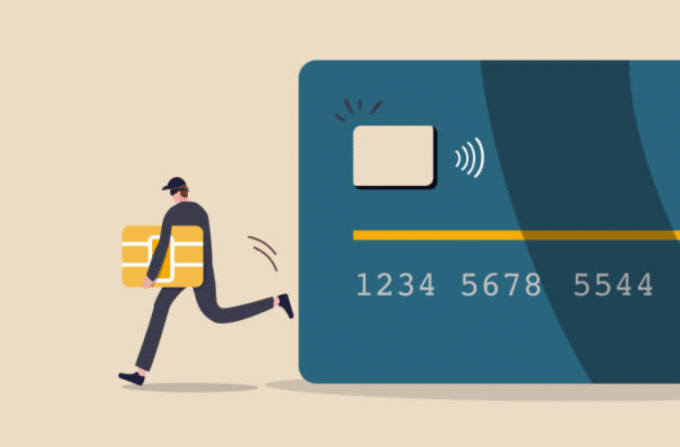Just imagine a world where everything is legal. Wait a minute, is there a place on earth where no laws apply? Personally, I have not heard of such a thing before, but if you know a place like that, share it with us in the comments below.
Table of Contents
If someone erects a bold sign that says “No Laws Apply” on their property, what would that mean? Can the sign hold any legal weight? In this write-up, we will try as much as possible to answer this question and other relevant questions relating to this.
What is a law?
In a simple sense, a law is a set of rules created and enforced by a governing authority to regulate behaviour within a society.
Laws are not merely rules; they must include a law enforcement system, prosecutorial system, and judiciary system to deal with lawbreakers. Laws are authority-based, enforceable, consistent and predictable.
As an individual, can you create your personal law? As an individual, you can set your personal rules that apply to you. However, you cannot create laws that apply to the general public unless you are in legal authority.
You can create laws for your businesses or oganisation, but they must comply with the laws of the country you live in.
The illusion of legal immunity
As far as we know, there is no jurisdiction in the world that recognises a private individual’s ability to opt out of the legal system. The ideal of “No Laws Apply” may not be an exception.
Every nation has its laws that apply to its citizens uniformly and equally within the borders of the country. The idea that individuals can declare themselves outside the jurisdiction of governments is not legally valid in any recognised legal system in the world. Or maybe you are planning to live in international waters, where no single country has jurisdiction over you, lol.
What is sovereignty of the law?
The national laws of every country are supreme to any other law within that country. Sovereignty grants a government executive authority over its territory, which includes the power to regulate the behaviour of private properties.
The Black Law Dictionary defines sovereignty a s “the possession of sovereign power; supreme political authority; paramount control of the constitution and frame of government and its administration.”
The principle of sovereignty is universal and recognized in international law. The United Nations Charter (Article 2(1)) affirms the sovereign equality of states.
Are there sovereign citizens in the world?
If we have sovereign law, why can’t we have sovereign citizens? Well, there is a group called the sovereign citizens movement, particularly prevalent in the United States, Canada, and Australia.
The group argues that citizens can opt out of government authority by rejecting their legal obligations like taxes, licenses or zoning laws. But you think this is possible? Won’t that be a clear violation of the laws of the nations? Let us know what you think in the comments below.
There are cases where sovereign citizens post notices or file documents claiming that their properties are out of government jurisdictions. However, courts always reject these claims.
In the United States, a court dismissed sovereign citizens’ claims as “frivolous” and “without merit” in the case of United States v. Benabe (654 F.3d 753, 7th Cir. 2011). This is not an isolated case; similar cases have been recorded across various jurisdictions.
A self-proclaimed sovereign citizen was fined in Australia for ignoring property regulations. In the case of South Australia v. Le (2014), the court affirmed that “no individual can exempt themselves from the law.”
Likewise, The Canadian Law Reports noted in Meads v. Meads (2012 ABQB 571) that such claims are “legally baseless” and often result in penalties for non-compliance.
As far as sovereign citizens are concerned, there are no legal systems locally or globally that recognise self-declared exemptions from the law.
Are there property laws?
Do you have rights as a property owner? Yes, there are some rights and privileges that come with owning a property. The property law spells out these rights, responsibilities and legal relationships associated with ownership and use of property.
Here is the thing: even within your own property, national laws remain supreme. National laws, whether environmental regulations, criminal statutes or building codes, apply universally whether it is your own property or not. Owning the property does not grant you immunity or sovereignty.
In the United Kingdom, the Law of Property Act 1925 highlights that land ownership is subject to statutory and common law obligations.
In United States v. Craft (535 U.S. 274, 2002), the Supreme Court noted that property rights are “subject to the state’s power to regulate and tax.”
Whether with signposts or not, no country in the world permits property owners to declare their properties a law-free zone. If you have an opposing view on this, let us know in the comments.
What will happen if you put a “No Laws Apply” sign on your property?
Merely mounting the sign will mean nothing. But what will happen if you begin acting on the sign?
Well, when you begin living regardless of the law, authorities will come over you unless you are living in international waters.
Posting a “no law apply” sign will likely attract legal attention and possibly some actions. These are some of the possible consequences you might face if you post the sign and start acting on it.
- In most jurisdictions, the moment you begin living a law-free life, various authorities will start issuing notices for non-compliance.
- Upon receiving notices of non-compliance, if you still choose to persist, various agencies may impose fines, liens or seize property.
- Defiance may lead to lawsuits or criminal charges. In Canada, a defendant’s “sovereign” defense against trespassing charges was dismissed in the case of R v. Warman (2001).
- However, if you still refuse to back down, authorities may forcibly enforce compliance. In the United States, extreme cases involving armed standoffs with “sovereign” property owners led to arrest and property forfeiture, as seen in United States v. James (2000).
Could “No Laws Apply” ever work?
The future is unpredictable, but according to the current laws, I cannot envision this ever happening.
Even posting the sign alone will likely draw unwanted legal attention. According to the FBI’s 2011 report on sovereign citizens in the United States, posting such declarations often precedes illegal activities.
Conclusion
Posting a “No Laws Apply” sign is a bold statement, but it does not mean anything in the eyes of the law.
In every jurisdiction on Earth, the rule of law reigns supreme over private declarations. Courts around the globe operate with the principle “no one is above the law,” and no sign can change that in the eyes of the law.
We hope at this point you have found the answer to the question above.

















